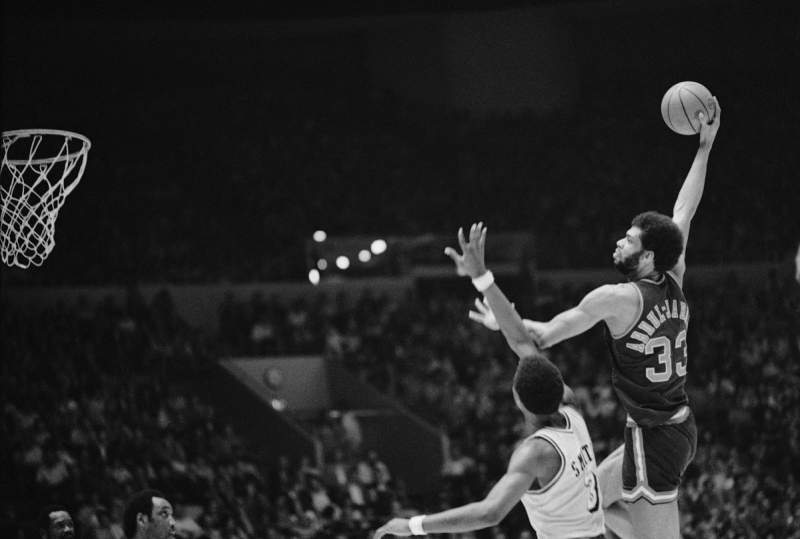Editor’s Note:
Marking Black History Month, we highlight some of the most prominent figures of Black American Muslims in recent history. Their stories, struggles and achievements could be an inspiration to the younger generations.
In this article, we will learn about Kareem Abdul-Jabbar in his own words by reading through his Book: “Becoming Kareem: Growing Up On and Off The Court”
Most of us know the name, the legend- Kareem Abdul-Jabbar. We know his legacy in basketball and all he has done for his African American and Islamic communities and his country.
We know his height; his athletic stats; his former name- Lew Alcindor. We think we know Kareem.
But we don’t know Kareem. We don’t know the man Kareem Abdul-Jabbar. We don’t know his childhood, his struggles, his introspection, his journey from Alcindor to Abdul-Jabbar.
But now we can have a glimpse into the making of this great man. But more than that we can learn from him.
In his memoir, which was published in 2017, Kareem Abdul-Jabbar shares his struggles growing up black, tall, quiet, shy, respectful in a world that was dominated by white people, small-mindedness, impudence, rudeness.
Though his words we can glimpse into the painful moments, the triumphs, the isolation, the introspection, the will to do better for himself, his people, his country, and the world.
In Becoming Kareem, Kareem Abdul-Jabbar writes that his first memories of playing basketball were at a private, Catholic, boarding school. It was on the basketball court that he found sanctuary from bullying, even though he was a clumsy player, trying to adjust to a rapidly growing body.
But he kept trying, kept learning, kept practicing, until he felt, as he narrates, like an athlete even though he wasn’t any good at that young middle school age.
It was also here in private, Catholic, boarding school where he experienced so much abuse from his peers that he became confused and angry by the disparity between what the Catholic church taught and the way his Catholic peers acted.
As he left middle school for high school, he became more and more aware of the injustices that black people in America suffered. He noticed how the civil rights movement seeped through the walls of his school.
As the movement gained strength, he lost a very close white friend who disassociated with him and called him the “n” word. And this “friend” wouldn’t be the last to hurt and disrespect him in this way.
These lessons about his blackness in white America and the pain and triumph of the civil rights movement continued to punctuate his youth.
He felt unsafe in a world that was indifferent to the murder of black children, isolated in a world that only saw him as tall and black, silenced in an education system that taught only white history, and disappointed by a faith that taught his people did not deserve dignity.

Life lessons to remember
In Kareem’s basketball career, he kept trying and learning, even though he felt too passive to play such an assertive sport. He pushed himself to do better, to be bolder.
He developed a game face and understood why his father and other black men had such a cold and stony exterior. It was protection from a world that afforded black men little opportunity and far less love.
Through determination and dedication, he became a star basketball player. But the lessons he learned he brought off the court. Kareem explains in his memoir his many basketball coaches taught him life lessons on and off the court, either by modelling who to be or modelling who not to be.
Kareem writes about how he breezed through academics and read ravenously. He practiced oration, studied logic, and did a journalism internship where he could research black history and his cultural heritage.
In school, he challenged teachers’ skewed version of politics and the whitewashed version of history that the American education system still teaches today. Dr. Martin Luther King, Jr. among other coaches, taught him to resist injustice in this arena of life.
In Becoming Kareem, the reader finds out how Abdul-Jabbar’s spiritualty blossomed as he realized everyone has a moral imperative to counter injustice, racism, and bigotry in all forms.
Kareem writes about his shock at learning that white people who considered themselves good Christians would attended church on a Sunday morning and then go and physically attack peaceful civil rights protesters.
He became disillusioned with Christianity. It was the faith forced on his ancestors by slave owners and pushed on him by his parents.
After a lifetime of religious study, Lew Alcindor accepted that God is One and Muhammad is God’s prophet.
He explains that Islam was the faith of his ancestors, it is a faith that gives his people (and all people) dignity. And he eventually changed his name to Kareem Abdul-Jabbar. Malcolm X and Muhammad Ali were bold examples of how to be one’s own man.

Through his memoir, Becoming Kareem, Brother Kareem is transformed to Coach Kareem, and the lessons he is teaching are not only for the individual. They are for society as a whole.
What Kareem writes about Malcolm X’s autobiography is true of Kareem’s memoir as well, “[It] is the kind of world-changing book that doesn’t come along too often in history.”
First published: April 2018
Read More:


